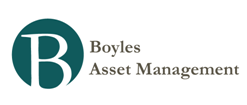WSJ: Congress's Phony Insider-Trading Reform
On closer examination, it appears that what Congress really wants is to keep making the big bucks that come from trading on inside information but to trick those outside of the Beltway into believing they are doing something about this corruption. For one thing, the rules proposed for Capitol Hill are not like those that apply to the rest of us. Ours are so broad and vague that prosecutors enjoy almost unfettered discretion in deciding when and whom to prosecute.
Congress's rules would be clear and precise. And not too broad; in fact they are too narrow. For example, the proposed rules in the Stock bill are directed only at information related to pending legislation. It would appear that inside information obtained by a congressman during a regulatory briefing, or in another context unrelated to pending legislation, would not be covered.
At a Dec. 6 House hearing, SEC enforcement chief Robert Khuzami opined that any new rules for Congress should not apply to ordinary citizens. He worried that legislators might "narrow current law and thereby make it more difficult to bring future insider trading actions against individuals outside of Congress."
This don't-rock-the-boat approach serves the interests of the SEC because it maximizes the commission's power and discretion, but it's not the best approach. The sensible thing to do would be to rationalize the rules by creating a clear definition of what constitutes insider trading, and then apply those rules to everyone on and outside Capitol Hill.
If the law passes in its current form, insider trading by Congress will not become illegal. I predict such trading will increase because the rules of the game will be clearer. Most significantly, the rule proposed for Congress would not involve the same murky inquiry into whether a trader owed or breached a "fiduciary duty" to the source of the information that required that he refrain from trading.
If enacted, the law of insider trading will remain one of many where one reality applies to Congress and an uncomfortable and insecure reality applies to everybody else. Just as Congress is protected from the vicissitudes of ObamaCare, Congress will remain safe from the vagaries of insider trading law. The rest of us will still be vulnerable.
- Hussman Weekly Market Comment: Brief Holiday Update
With Monday as the last opportunity for Congress to avoid some version of the “fiscal cliff,” there isn’t a great deal to say that will be relevant for long, but my impression remains that the most likely outcome is that fiscal policy will go over...
- David Einhorn Tells His Side Of The Story On The Fsa's Insider Trading Fine
Prominent hedge fund manager David Einhorn, who is known for seeing problems at Lehman Brothers and publicly shorting the stock prior to the bank's demise, was fined yesterday by the U.K. Financial Services Authority. Einhorn and his fund Greenlight...
- Ex-sec Chief Levitt: Muni Market Massacre Is Coming
Found via My Investing Notebook. This is an area where Mr. Buffett has sent some warning signals as well. Former Securities and Exchange Commission chairman Arthur Levitt says there's a massacre about to happen in the municipal bond market. The muni...
- Tax Impact From Fiscal Cliff Deal
After Congress finally ended the fiscal cliff debacle, for now, I was in search of how exactly the tax brackets would look like. There's now a ridiculous 7 brackets, this isn't close to the most we've had but it seems overly complicated...
- The Edge Market?
Been really busy, as is expected from school life. I watched a video advertisement about The Edge Market. Apparently it's supposed to provide insider trading tips. LOL. How real is that? Any opinions? Teenage Investor....

